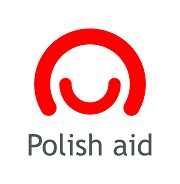As the second round of Academy of Participation in Georgia concludes, 16 new graduates join the alumni community. The graduates gained new skills and knowledge on initiating and implementing various participatory processes in their territorial self-government unites (i.e. the municipalities). This marks yet another step in strengthening the decentralisation of Georgia and facilitating social dialogue between local authorities and civil society.
The official closing ceremony of the Academy of Participation took place on 4 October 2020. In the presence of a representative of the Georgian Ministry of Regional Development and Infrastructure (MRDI), the Head of the Solidarity Fund PL Representative Office in Georgia handed 32 diplomas to the graduates who had increased their professional competencies during the basic and the advanced course (16 persons each) at the Academy. Due to the growing number of SARS-CoV-2 infections and the precautionary measures taken by the Fund’s Representative Office in Georgia, the event was celebrated on-line.
Academy of Participation is an annual training programme held by Solidarity Fund PL in Georgia, focused on various forms of social dialogue and participation in local-level decision processes. The programme is also dedicated to presenting the best international practices of good governance. The 34 participants who joined the Academy in 2020 hailed from several different regions of Georgia: there were 17 basic course attendees, i.e. persons with limited or no experience in the field of participation and 17 participants of the advanced course, i.e. practitioners who wished to gain new knowledge and raise their professional qualifications. The participants were chosen from over 50 candidates from 7 regions all across Georgia. The selected group included representatives of city councils (7 persons) and non-governmental organisations (9), active citizens (3), and representatives of town halls (15).
As part of the Academy of Participation there were 4 training sessions with foreign experts. One of the sessions took place on-line and one of the modules was held in a hybrid form: the participants gathered in the alpine region of the Autonomous Republic of Adjara and were joined by a Ukrainian expert via Internet connection.
Interactive elements of the training process comprised a mentoring programme and practical assignments. This year, the participants have been strengthening their skills in regards to digital tools through creating materials and content for the participatoryhub.ge digital resources and social dialogue platform. Additionally, under the supervision of the project team, they have planned and organised direct meetings with residents of mountain villages of Ajaria. The goal was to foster the process of establishing initiative groups of residents, who in turn would broker talks on the directions of development for three selected villages.
The training cycle ended with an exam consisting of a theoretical knowledge test and a practical part — a project for implementing the idea of participation in Georgia. It was the participants themselves who were tasked with selecting the best proposal. The winner was “Be active, be involved” — a project for using Academy-trained Zugdidi municipality workers to transfer the knowledge and experience gained through implementing participatory budgeting in Zugdidi to the adjacent self-government units of Khobi and Tsalenjikha in the Samegrelo-Zemo Svaneti region.
One of the highlights of the closing ceremony was the announcement of the results of the first individual certification process for participation practitioners in Georgia. Based on the competency framework drawn up by the Solidarity Fund PL Representative Office in Georgia, 11 practitioners have joined the certification programme and 7 of them received recommendations. They covered guidance on career development paths, as well as building competencies and qualifications in regards to participation. Two practitioners, who have achieved the most outstanding improvements in developing their professional competencies, were awarded with a voucher for a study visit at the Social Innovation Laboratory in Gdynia*.
The Project is co-financed by the Polish development cooperation programme of the Ministry of Foreign Affairs of the Republic of Poland.
*The vouchers will be redeemable upon the opening of state borders and the liberalisation of COVID-19 safety rules and legislation.



